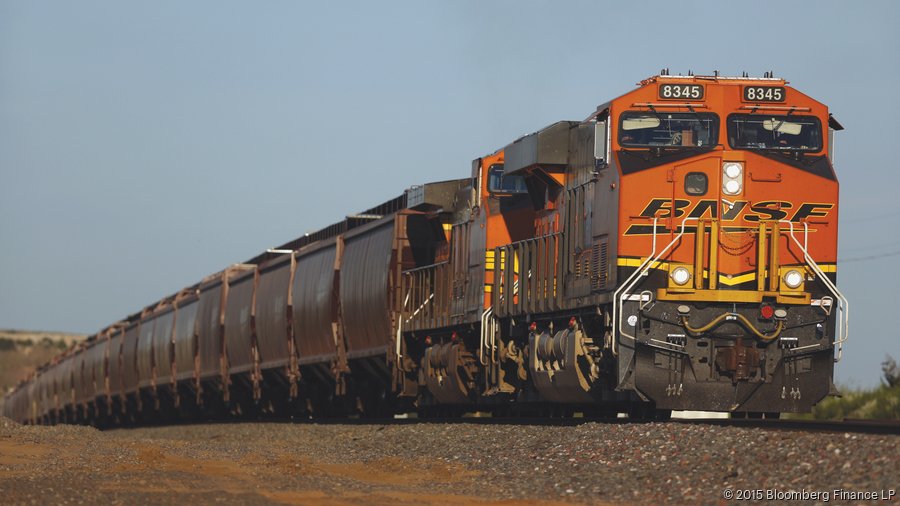BNSF Railway has furloughed roughly 4,600 of its employees nationwide over the past few months as declining oil prices and coal demand have taken a toll on the industry not seen since the Great Recession.
The furloughs total about 10 percent of Fort Worth-based Burlington Northern Santa Fe’s workforce, roughly matching the layoffs the railroad made in 2007 and 2008, Matthew Rose, executive chairman of BNSF, said at an energy conference in Billings, Montana.
The company has also stopped hiring and is offering buyouts to older employees, Rose said in Montana.
“We are in an energy depression and industrial recession, and the consumer is doing just OK,” Rose told The Billings Gazette at the energy conference Thursday.
Volumes were down 3 percent in 2015, and Rose said the company — whose energy portfolio is about 30 percent — is bracing for a tough few years.
The number of furloughs has not been broken down by city or state, a BNSF spokesman said.
BNSF is part of Warren Buffett’s Berkshire Hathaway, based in Omaha, Nebraska.
In May, BNSF said it was planning employee furloughs due to a drop in demand for freight shipping across its rail network. At the time, the railroad declined to say how many employees would be impacted but said that they are at different locations.
Oil drilling has dropped sharply in North Dakota’s Bakken Shale and other fields following the collapse in oil prices. BNSF is the biggest hauler of freight in the Upper Great Plains.
Last year, BNSF was expanding rapidly, adding 500 locomotives and 6,000 workers to meet demand.
The reduced demand is not affecting locomotive acquisitions, which are based on long-term contracts that were previously in place.
Total traffic for large U.S. railroads fell 2.5 percent last year and the declines have continued into 2016, according to the Association of American Railroads.


